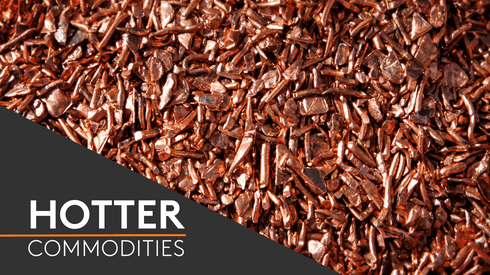Last week alone Metal Bulletin journalists have reported on: negotiations over steel contracts for 2012; plans to launch an ore exchange in South Africa and a web-based rare earth exchange; the decline in aluminium premiums; Vale’s gradual shift towards spot market-based iron ore pricing; daily movements in copper premiums and the prices for ferrous scrap; the arrival of large stocks of zinc in New Orleans; the cancellation of an erroneous trade on the London Metal Exchange; and warehousing company Steinweg’s takeover of J Oosterom & Zoon.
Something else has been going on too, though – the third-generation interactivity revolution.
Metal Bulletin was an early adopter of the internet, email and fax as a means of distributing news and prices to its subscribers.
Lately, Metal Bulletin’s staff have thrown themselves with vim and intelligence into the use of new platforms to tell stories and search for and disseminate information.
(This applies equally to what was formerly our directories business and is now the Metal Bulletin Company Database, an online database at http://www.mbdatabase.com, which is searchable by company, metal, product, country and any number of other relevant criteria.)
Spurred on by the information we received from the market about the effect of metal thefts on scrap merchants and metal recyclers, we posted our second video last week — an interview with British politician Graham Jones.
The same story generated useful comments from industry participants on Twitter, where Metal Bulletin itself as well as its journalists now have their own feeds. They covered the recent ferro-alloys conference in Berlin on those feeds, as well as writing their customary articles.
Our LinkedIn group (http://linkd.in/tGsTtc) also contributed to our understanding of the issues around metal theft, with group members from as far afield as India giving us their views.
There is an interesting corollary to this in terms of the actual content Metal Bulletin has created.
Expanding into different platforms has made its journalists think more about how they tell stories — hence the cartoon strip on page 13, which is not something that has been done at Metal Bulletin for at least the past ten years, and maybe ever.
It goes without saying that the quality of our prices and news are of paramount importance, whether displayed on a desktop PC, in a magazine or PDF, or on a portable device (to view on your mobile, just log it on to metalbulletin.com).
But we think that new platforms and new types of content will enable Metal Bulletin to provide its subscribers with information in ways that are fresh and revealing.
And who knows? Maybe the next piece we write or price we discover will have come from a tip-off or insight from LinkedIn or Twitter…
So if you want to see what we are up to, or share information with us through Twitter or LinkedIn, these are the places:
@metalbulletin
Alex Harrison: @alexharrison_mb
Claire Hack: @ClaireHack_MB
Janie Davies: @JanieDavies_MB
Jethro Wookey: @JethroWookey_MB
Mark Burton: @mburtonmb
Barbara O’ Donovan @BODonovan_MB
Michelle Madsen: MMadsen_MB
Daniel Gleeson: DanGleeson_MB
LinkedIn group: http://linkd.in/tGsTtc




